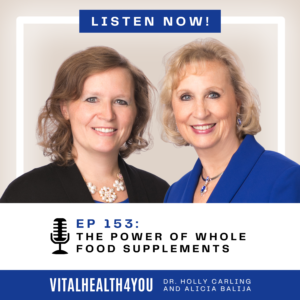Part I
Here we go again! It’s the first of the new year and we are anxious to get on with our New Year’s resolutions. Number one on the list is generally to lose weight. It seems everyone thinks the only answer to losing weight is to eat less, eat healthier and exercise. However, there is more to it than that. Resolving it means being healthy all year long. But how?
First of all, we pretty much know if we weigh too much, or are a little puffier in the belly than we know we should be. Sometimes it’s the opposite and we have a distorted view of what a healthy body should be. For instance, a woman who has had kids shouldn’t expect to look the same afterwards. Her bony structure is different, and her skin has stretched out. However, many women look amazing after childbirth. We shouldn’t expect to reach our high school weight when in our 50’s or 60’s or older – we would look malnourished. So how do we know what is healthy?
The “world” considers a weight of greater than 20% of “ideal” to be over-weight. But here is where it varies. From one organization to another “ideal” can be different weights altogether. Assessing BMI (body mass index) is certainly a more accurate way to determine that because they are measuring fat vs. muscle mass. But even that can differ. Another method of measurement can be waist circumference. Then we look at art from centuries ago, and a little fat on the hips and waist was considered “healthy”.
Where you hold your weight can be diagnostic. If you tend to gain weight in your thighs, in the hips, in the “tire” around your belly, the little pouch of your lower abdomen, or in your breasts – all may mean something different. If you have edema causing weight gain, that is yet another issue.
One of the most important parts of creating a lifestyle to bring your weight to a healthy place is to do the investigative work necessary to find out WHY you are gaining weight, or why you can’t lose it. Many people do “everything right” that should cause the weight to fall right off them, and it doesn’t budge, or they continue to gain weight. That’s why it’s so important to do some digging to figure it out from a deeper, causative layer.
For instance, you could have a problem with your endocrine system – the system that produces your hormones – not just sex hormones, but hormones related to sleep, inflammation, emotional health, digestion, energy, etc.
In Part II of Healthy Year ‘Round we will go into the details of more causes of weight control issues.
Part II
In Part I of Healthy Year ‘Round we discussed briefly the varying reasons for gaining weight or the inability to lose it. This second part will detail more of the reasons.
We discussed that you could have a problem with your endocrine system – the system that produces your hormones – not just sex hormones, but hormones related to sleep, inflammation, emotional health, digestion, energy, etc. The organs involved could be the thyroid, adrenals, liver, pituitary, hypothalamus, gonads, ovaries or pancreas. You could have issues with PCOS, menopause, or other hormonal-related challenge.
A problem with brain hormones could result in depression, lack of motivation, skewed body image, stress eating and other issues that could result in stubborn weight issues. These can be helped with nutrition, acupuncture, counseling and other such therapies, and not just drugs.
Sleep is a big deal in reaching your optimal weight. But if you’re not sleeping well, just taking a medication for it won’t always help. We need to find out WHY you are not sleeping – not falling asleep, not staying asleep or not returning to sleep if awakened, and not waking feeling refreshed. All these can have different causes, all with different solutions.
Certain medications such as steroids, antipsychotics, antidepressants, birth control pills, high blood pressure pills (especially beta-blockers) and epileptic medications can make you hungry (causing you to eat excessively), slow your calorie burn, or inhibit nutrient absorption. Taking care of the underlying condition can mean no longer needing the medication and helping your health and weight improve.
One area to be careful of is edema, especially swelling of ankles, which can mean something more serious such as congestive heart failure or kidney disease. If you are gaining weight quickly and see swelling or nothing else has changed, it would be prudent to check out and rule out any serious condition.
Blood sugar problems: insulin resistance, diabetes or prediabetes, metabolic syndrome and/or the excessive consumption of sugar/carbs will almost certainly contribute to weight gain and is essential, in my opinion, in weight control. As you can see, difficult weight control isn’t as easy as just eating less and exercising. There can be more to it (even more than just listed in this article). Finding a practitioner who can do deep investigative work and offer solutions to overcome the health challenges is vital to getting your weight under control.
©2021 Holly A. Carling, O.M.D., L.Ac., Ph.D.







